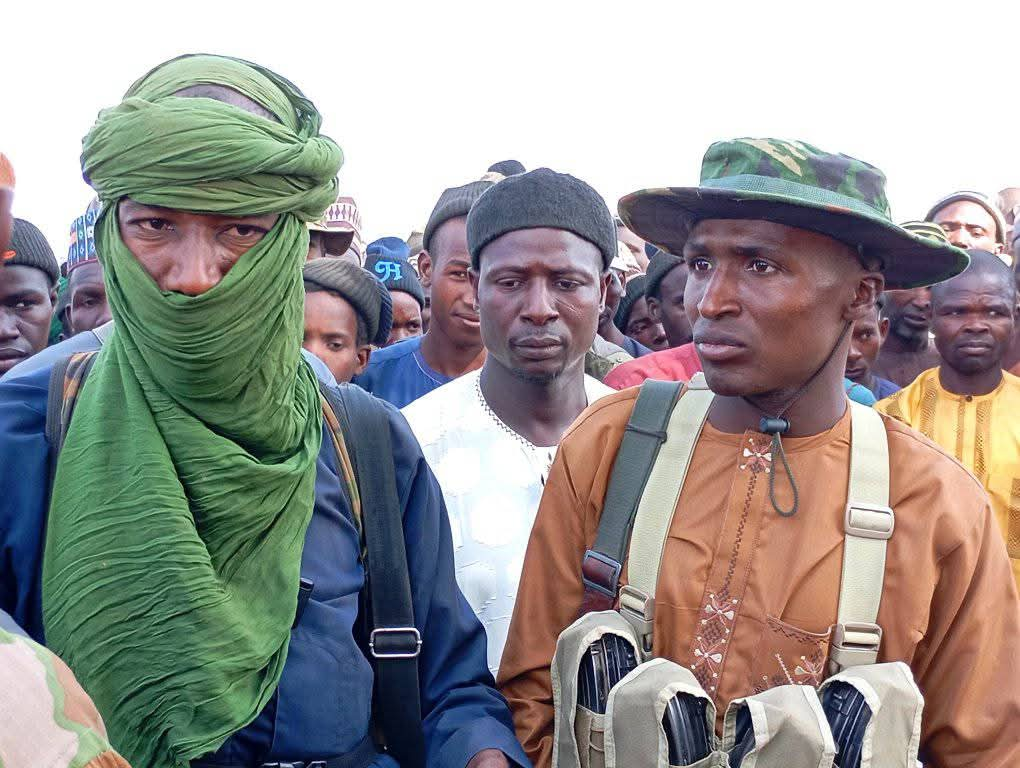A Glimmer of Hope in Katsina: Peace Talks with Bandits Raise Questions on Sustainability

Peace Talks Held with Bandits in Batsari
By Zaharaddeen Ishaq Abubakar | Katsina Times
Despite the Katsina State government's firm stance against negotiating with bandits, a peace dialogue was held in Kofa, Batsari Local Government Area, on Tuesday, February 11, 2025. The meeting, led by military personnel, came at the request of the armed groups, who expressed a willingness to end attacks in the region.
Security officials at the meeting revealed that the bandits initiated the dialogue, seeking an end to the violence and a restoration of peace. During the talks, the group's leaders demanded an end to military operations against them when they enter towns and called for an end to what they described as the "harassment of Fulani communities."
Among the prominent bandit leaders in attendance were Abu Radde, Umar Black, Abdu Dan Da, and Abdu Lankai, accompanied by their armed followers. Also present were key Fulani elders, including Shafii Sarkin Fulani, as well as local community leaders. As a gesture of goodwill, the bandits handed over two rifles to security forces.
This was not the first such meeting. Just three weeks earlier, a similar dialogue took place in Kofa, during which bandits surrendered four firearms as an initial step towards reconciliation. However, the move has sparked debate over the effectiveness and risks of fragmented peace deals.
Security analysts and conflict experts warn that negotiating with only a section of the armed groups, without a comprehensive strategy, could further complicate the security crisis. Katsina remains one of the states worst hit by banditry, with between seven and nine local governments affected. Just last week, a retired military officer and former director of the National Youth Service Corps (NYSC), Major Tsiga (rtd), was kidnapped. The most affected areas include Batsari, Jibia, Safana, Danmusa, Faskari, Sabuwa, Kankara, Dandume, Dutsinma, and Kurfi.
Governor Dikko Umar Radda has repeatedly reaffirmed his administration's refusal to engage in peace deals with criminal groups. He maintains that only individuals who voluntarily surrender and renounce crime will be considered for rehabilitation. “If a bandit willingly surrenders and proves his repentance, we will reintegrate him into society,” the governor stated.
Past experiences show that selective peace agreements—where some groups lay down arms while others continue attacks—have often backfired, allowing non-participating factions to regroup and escalate violence.
The key question remains: Will this latest initiative lead to lasting peace, or will it follow the pattern of previous failed agreements? While the desire for peace is clear, security experts stress the need for a structured and well-monitored reconciliation process to prevent a resurgence of violence.
For now, Katsina faces a difficult balancing act between pursuing peace and maintaining its stance against negotiating with criminals.

